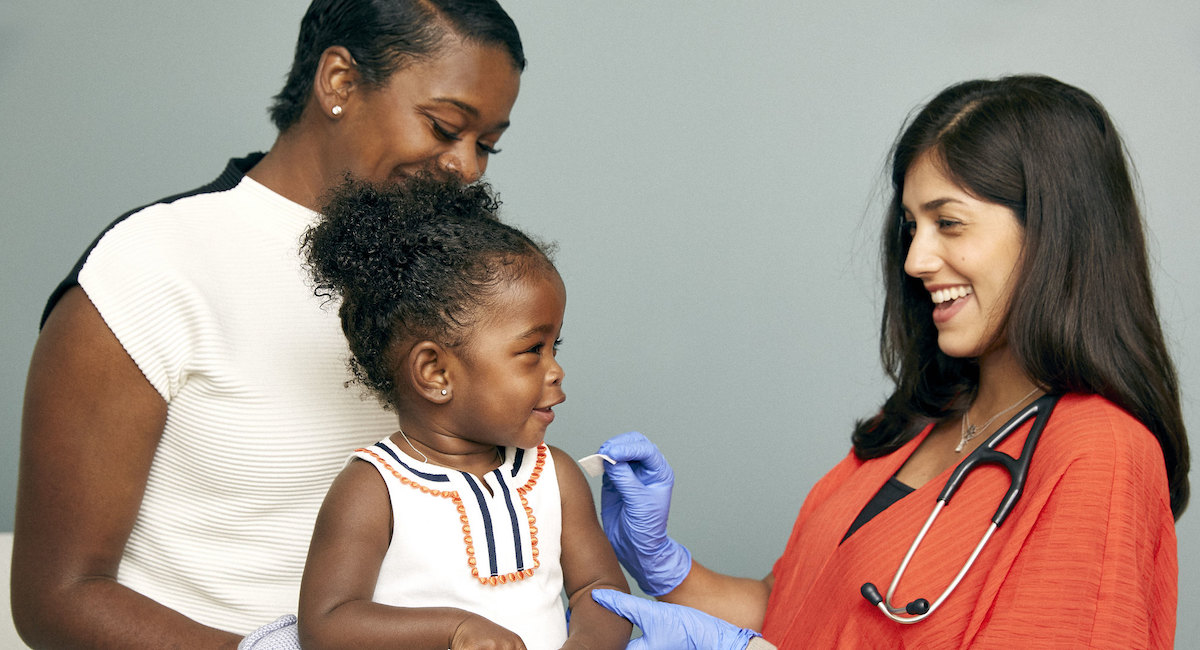This article appeared in the Pittsburgh Post-Gazette. Read the full article here.
The U.S. Centers for Disease Control and Prevention has provided more data that the bivalent booster shots to protect against COVID-19 are safe for children ages 6 months to 5 years.
In a report released last week, CDC experts reviewed the Vaccine Adverse Event Reporting System, or VAERS, and found that between June 2022 and May 2023, the vast majority of reports for young children involved only mild and temporary symptoms in reaction to vaccines. More than a third reported no reaction to the shot. About 550,000 bivalent shots were administered to the age group during the time period, and of that group, eight parents reported serious complications. Those were further reviewed by CDC physicians.
“All children aged 6 months–5 years are recommended to receive at least 1 bivalent dose and might need multiple COVID-19 vaccine doses depending on their age and COVID-19 vaccination history,” the CDC wrote in its report. Monovalent vaccines have ceased to be offered in place of the more relevant bivalent shot.
The bivalent booster, which targets the Omicron strain and its subvariants, became available to the general population in September of 2022 and to young children that December. Earlier monovalent vaccines, which were given as primary doses starting in 2021, were previously found to be safe and effective at preventing against severe disease from COVID-19 in children last June, with more data about their safety released in February.
The latest data comes as COVID-19 wanes from a pandemic to an endemic stage, meaning experts expect it will linger in the population and ramp up during winter months when respiratory illnesses typically peak. Dr. Michael Petrosky, lead pediatrician with Allegheny Health Network’s Arcadia Division in Wexford, said he expects vaccine dosing to become similar to flu shots.
“COVID is still out there,” Dr. Petrosky said. “We’re not seeing as many cases, but we are still seeing some.”
Dr. Petrosky said he still recommends vaccination, especially as children enter daycare and school in the fall. He uses a risk-benefit analysis approach when speaking to parents about the shots.
“Most kids don’t deal with severe illness” from COVID-19 infections, he said. But if they do experience symptoms, “under the age of 12, there’s nothing really you can do to treat [COVID] besides supportive care.” The antiviral drug Paxlovid helps reduce debilitating symptoms but is only approved for adults and for children ages 12 and up.
“The risk is low, but the benefits are high,” he said of vaccination.
During a Board of Health meeting in January, then-director of the Allegheny County Health Department Dr. Debra Bogen said children weren’t being vaccinated at high rates across the county compared to other age groups, consistent with national trends. At that time, just 5.6% of Allegheny County children ages 5 to 9 had received a bivalent dose.
Since then, the vaccination rate for that age group has increased to 9.2%. For ages 0 to 4, just 4.3% have received the bivalent booster, according to county data as of last week.
“Bivalent vaccines and booster doses are important protection against COVID-19-associated hospitalizations, urgent care visits and ED visits,” said Dr. Bogen at the Board of Health meeting, who is now Pennsylvania’s Acting Secretary of Health. “I encourage you all to get your bivalent booster dose if you haven’t done so yet.”
Allegheny County has seen widespread vaccine immunity for years, but there are signs it is declining. The 2021-2022 Health Department Immunization Report shows a drop in school-age immunization of 1.4 percentage points over seven years.
“Due to effective vaccinations and treatments, and the evolution of the virus, COVID-19 has become a much less severe disease for most of the population, but that does not mean the virus has been eradicated,” said Mark O’Neill, a spokesperson for the state Department of Health. “The best defense against COVID-19 for young children and the population at large, remains getting vaccinated and continuing basic health and hygiene practices, like hand-washing, staying home when sick, and avoiding contact with people who have suspected or confirmed COVID-19.”
If parents are hesitant about vaccinating their children, Mr. O’Neill recommended they speak with a trusted health care professional, like their family doctor or a pediatrician.

